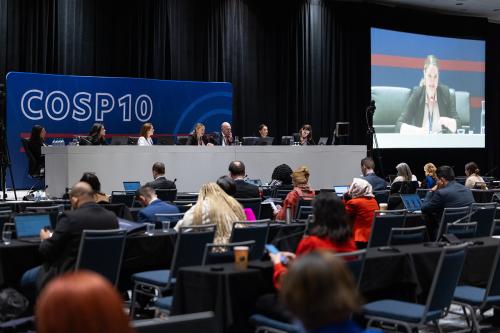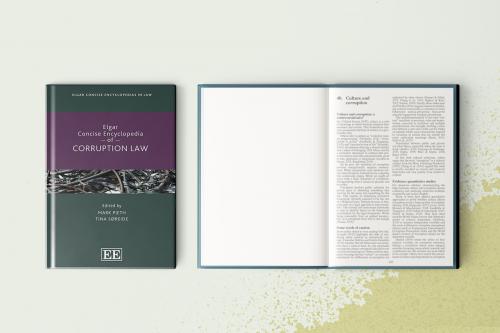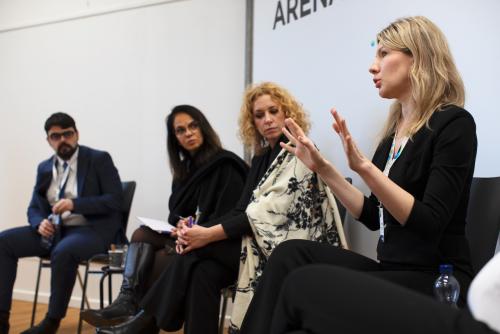Talking from experience – an interview with Tayfun Zaman
In an interview with Tayfun Zaman, Secretary General at TEID , Ethics and Reputation Society, and Founder and Director of Turkish Integrity Center of Excellence, Mr Zaman talks about his own professional experience of launching and participating in a Collective Action initiative for custom brokers in Turkey. This article first appeared this summer in the Basel Institute Institute on Governance Annual Report 2014.
Can you please tell us about TEID, the Ethics and Reputation Society of Turkey?
The Ethics and Reputation Society – TEID, was established in May 2010. TEID’s main mission is to make business ethics the very basis of companies’ written culture in Turkey. It is also our aim to act as a reference centre in integrity risk management in Turkey. In this context, TEID establishes partnerships and affiliations with some of the most respected NGO s in the field, such as the Basel Institute on Governance.
TEID currently has more than 100 corporate members, whose total revenues exceed 13% of Turkish GDP and who collectively employ approximately 200,000 people.
TEID has initiated a Collective Action amongst customs brokers in Turkey.Could you tell us more about the background of this initiative?
TEID, in partnership with five local associations of customs brokers in Turkey (Istanbul, Izmir, Bursa, Mersin and Ankara) has prepared Customs Brokerage Ethics Standards governing business ethics and integrity risk management in customs-associated transactions and relations. At the unveiling of the initiative in 2013, 250 Turkish customs brokers signed the declaration of integrity.
What are the main goals and operating procedures of the Customs Brokerage Ethics Standards?
The initiative seeks to combat corruption and integrity related barriers in customs operation with a holistic approach, through the partnership of NGO s, and both the public and private sectors. First, we try to address and manage the relationship between customs brokers and the customer in order to better manage integrity risks on behalf of the customer. Secondly, we promote fair competition in all business relationships involving customs brokers and their customers. Finally, the Customs Brokerage Ethics Standards includes commitments for combatting corruption in connection with interactions between customs brokers and public officials.
Why have you chosen a Collective Action approach over another methodology and why do you think that Collective Action was the most promising one in view of the challenges that you were seeking to address?
As the private sector can play a part in the corruption problem in customs, it can also be a significant part of the solution. An adherence to standards of integrity and ethics by customs brokers in their business could thus be considered as an initial key step. A comprehensive Collective Action approach can further strengthen and support a successful integrity programme of individual customs brokers, increasing an individual company’s impact by making fair business practices more common and elevating individual action of vulnerable individual players such as small and medium sized enterprises, which compose the majority of customs brokerage operations in Turkey. Thus, this gives customs brokers a very important part in reducing corruption in customs through their role as agents of the private sector.
In June 2014, the ICCA hosted an international conference on anti-corruption Collective Action, where you delivered an excellent presentation. Could you please share with us some of your thoughts and experiences on the event?
It was indeed a pleasure to take part in this important conference. I believe that it was a very productive event for me and for all of the participants, providing a unique opportunity to exchange with Collective Action practitioners from business, government, academia and civil society. The variety of topics and methodologies analysed in the presentations and discussions helped underscore effective methods and the value of Collective Action in the fight against corruption. It was an honour to discuss some of the successful examples, practical advice and lessons learned about collective action drawing from our recent experience in Turkey.
Turkey is currently the host nation for the G20/B20, with a B20 Task Force devoted to Anti-Corruption. What will be B20 Turkey’s approach to anti-corruption?
The B20 and G20 this year are focused heavily on implementation, and thus B20 Turkey will build upon recommendations and action plans of the 2014 B20 Anti-corruption Working in ( ACWG ) in Australia and the G20 ACWG. For example, one B20 Australia Recommendation calls for endorsement of the G8 core principles on transparency of ownership and control of companies and legal arrangements.
G20 leaders answered positively to this recommendation, and thus B20 Turkey will focus on this as an area for implementation in 2015, with actions to be further detailed and carried out over the course of the year. In addition, B20 Turkey’s approach for 2015 will also contain an important Collective Action component, again in relation to the area of customs brokerage.
That is a very topical idea, in light of your experience in this field. What are your recommendations to B20 with regard to Collective Action in customs brokerage?
- Model a collective action tool-kit to be used by the local associations of customs brokers in all G20 Countries to promote and facilitate parallel collective action initiatives
- Prepare a customs-focused integrity guideline equipped by sector specific risk definitions, regulations and solutions
- Create sector specific tuning based on the integrity barriers defined by a TEID / OECD Survey
- Conduct a corruption focused survey in Turkey to identify corruption risks and barriers in customs operations
- Create and publish a “case for change” showing the return on investment for customs agencies of each G20 country that combats corruption
- Compile an online repository of innovative uses of technology and analytics, apps, data platforms, case studies in mitigating corruption risk at customs in G20 countries
- Monitor adoption and effectiveness of new technologies in customs in five pilot G20 countries.
You have recently founded and lead the Turkish Integrity Centre of Excellence (TICE). What are the aims of this institution and how do you see it further promoting business integrity and Collective Action?
We have established TICE in 2014 with the mission of levelling the playing field, by including and engaging the private sector in the fight against corruption, based on the recognition that businesses seldom have appropriate expertise to implement internationally developed anti-corruption and good governance guidelines and standards.
Also, it was noted that the assessment of how companies improve their practical implementation of these standards is difficult due to the lack of coherent data regarding socio-economic effects of corruption on leading sectors of the local economy.
Further, especially smaller companies, whilst they might have defined some sort of ethical standards, often do not have a compliance program through which they integrate those standards into their written corporate culture and into their corporate practice. Consequently business ethics remain a soft skill for the companies rather than a value and an asset to be measured, reported and effectively managed. The vision of TICE is to create a cultural change in the Turkish private sector to address this problem.
To this end, TICE amongst others is dedicated to training compliance officers who will effectively manage integrity risks for their companies. Collective Action will play a very important role in this cultural change.



